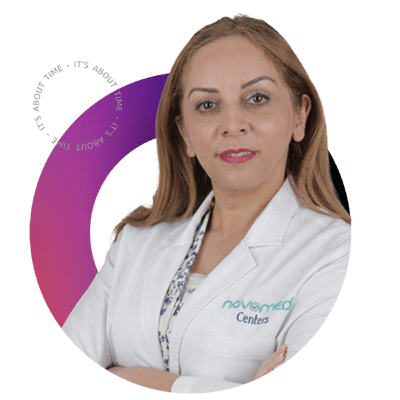Atrial fibrillation (AFib) is the most prevalent form of irregular heart rhythm, resulting from disorganized electrical signals in the heart’s upper chambers (atria). The heart’s electrical system coordinates the contraction and relaxation of the atria and ventricles to provide a regular and healthy heartbeat. Atrial fibrillation disorganizes the electrical signals, causing the atria to fibrillate or quiver instead of contracting properly.
AFib affects millions of people throughout the world. If left untreated, this illness can lead to various consequences, including stroke and heart failure.
Symptoms of atrial fibrillation
Some people with AFib may not experience any symptoms, while others may experience:
- Palpitations or a sensation of a racing, irregular heartbeat
- Fatigue or weakness
- Shortness of breath
- Dizziness or lightheadedness
- Chest pain or pressure
Causes of atrial fibrillation
Disorganization and instability in the heart’s electrical signals cause atrial fibrillation. Although its specific causes are sometimes obscure, several risk factors have been linked to the onset of atrial fibrillation.
- Age: AFib is more prevalent in older individuals, particularly those over 60 years old.
- High blood pressure: High blood pressure may cause heart damage and increase the likelihood of atrial fibrillation.
- Heart disease: AFib is more likely to occur in individuals with heart illnesses, such as coronary artery disease or valve issues.
- Obesity: Being overweight and obese can raise the chance of developing atrial fibrillation.
- Sleep apnea: Increased chance of developing AFib is associated with sleep apnea, a disease in which breathing is continuously disrupted during sleep.
How is atrial fibrillation diagnosed?
Your doctor may suspect atrial fibrillation based on your medical history, symptoms, and physical examination.
The diagnosis is confirmed by an electrocardiogram (ECG) that measures the heart’s electrical activity. It may be necessary to do additional testing, such as an echocardiogram or blood tests, to determine the presence of underlying cardiac diseases or complications.
Atrial fibrillation treatment
The treatment options for atrial fibrillation depend on the severity of the condition and may include the following:
- Medication
Medication may be provided to help regulate the heart’s pace and rhythm and prevent blood clots. Common prescriptions include beta-blockers, calcium channel blockers, and blood thinners.
- Cardioversion
Cardioversion is a treatment that employs electrical shocks to restore the heart’s natural rhythm. It may be performed either as a planned procedure or in an emergency.
- Catheter ablation
This minimally invasive procedure utilizes radiofrequency energy to remove small portions of cardiac tissue responsible for the irregular rhythm.
- Surgery
In some conditions, surgery, such as a maze procedure or installing a pacemaker or defibrillator, may be required to treat AFib.
- Lifestyle Changes
Lifestyle changes can also be a significant part of treating AFib. This can involve quitting smoking, reducing alcohol and caffeine consumption, maintaining a healthy weight, and controlling underlying health issues such as hypertension and diabetes.
Book your appointment at Novomed today!
At the Novomed Cardiology Clinic, our consultant and specialist cardiologists are committed to providing every one of our patients with the highest standard of care possible for the diagnosis, treatment, and prevention of heart diseases. With extensive training, our cardiology staff can diagnose and treat heart diseases according to the most up-to-date scientific evidence.
To learn more about our services or book an appointment, call us toll-free at 8006686 or click the live chat icon at the bottom of the screen.


























